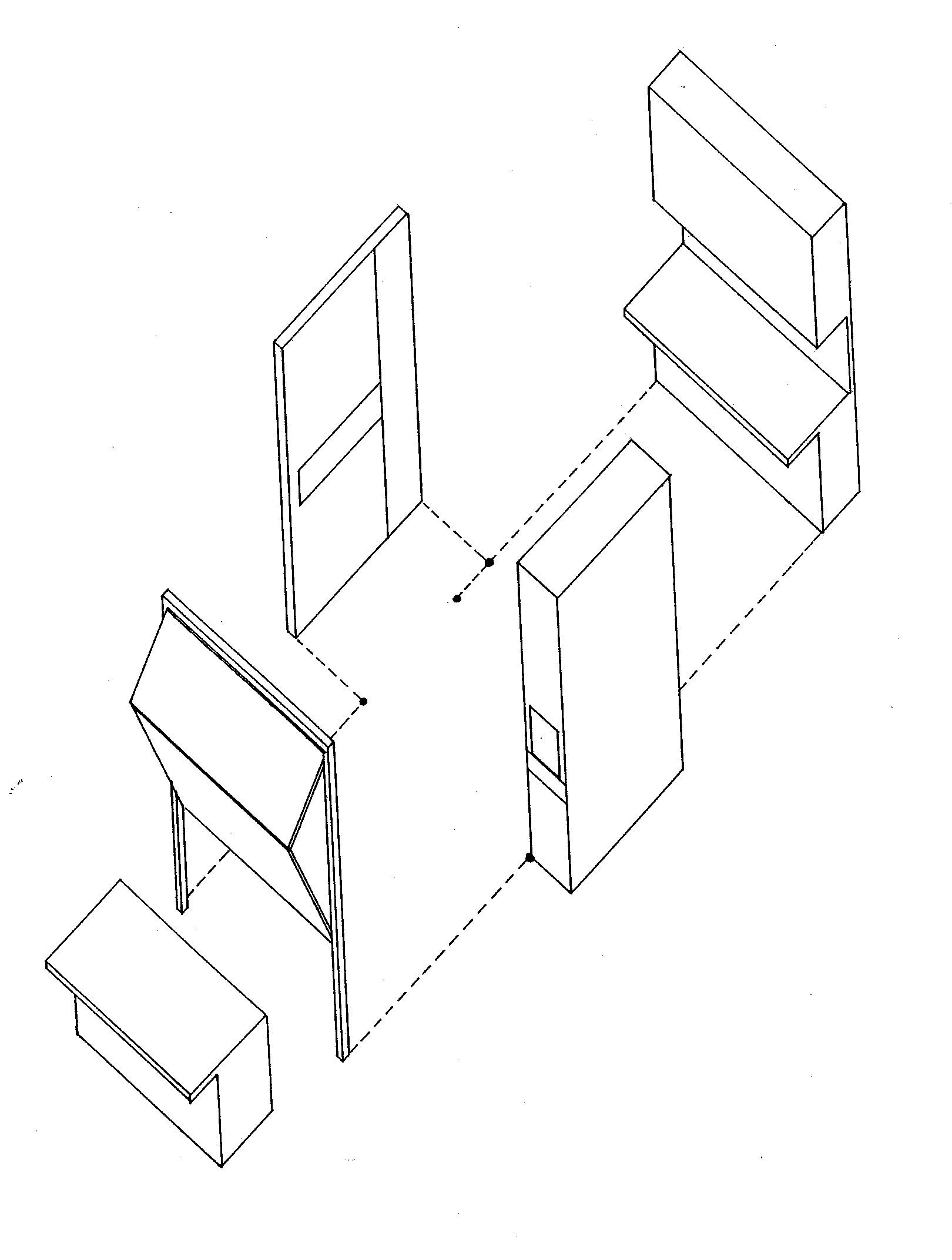With the approach of the millenium, changing management styles, coupled with new technology and the need to cut expenses, spur the need for initiatives in office design. Offices are expected to drive down occupancy costs, while stimulating creativity, interaction, invention and teamwork. Previously, office design was tied to the accommodation of the very stationary and permanent typewriter. Now, the ease of global communication/travel and the advent of laptop computers have introduced mobility and flexibility within the workplace, allowing people to redefine where and when they work. The design profession must offer alternatives to suit these changing attitudes and needs.
Contemporary issues are addressed in a design, which explores how one piece of furniture can accommodate the needs of public and personal space in an office. Each purpose-built, de-mountable module provides a semi-private enclosure with independent service supports and storage. To reduce costs, the five separate components are pre-fabricated off site in multiplication. Dimensioned to fit in typical commercial building elevators, they can be quickly assembled on site. Permeable strips of polycarbonate reduce the solidity of the unit making circulation behind and around less oppressive than between conventional office cubicles.
With an incorporated workbench, data and power points, privacy can be achieved by working within the module. Built-in switches for immediate overhead lighting allow an individual additional control over their environment. When more interaction is required, laptop computers can be moved to the rollout desk which can serve as an informal meeting place for co-workers, clients and consultants to gather around. This alleviates pressure to allot expensive floor space to formal conference rooms, which are not always in use. When away for extended periods of time, staff members can secure their desk and work materials inside the module by sliding down a double-hinged, translucent panel, reminiscent of cabanas during the winter season or traditional street stalls at night. The space adjacent to the closed module can be re-appropriated be remaining staff to expand personal workspace or by a group for joint meeting areas. The desks on wheels provide the flexibility to form different configurations.


















